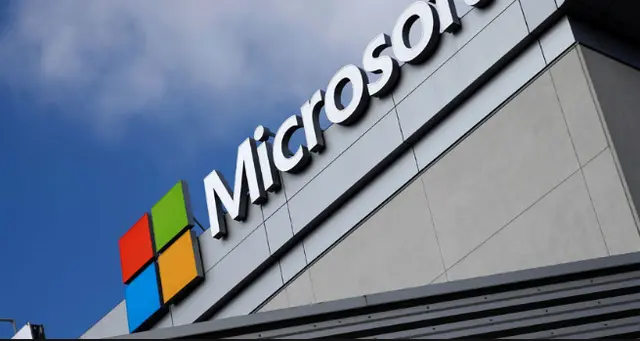For the last few years, American technology giants have been embroiled in a power struggle with the United States government over when authorities get to see and use the digital data that the companies collect.
On Thursday,
Microsoft
won a surprise victory in one such legal battle against the government over access to data that is stored outside the United States.
In the case, the United States Court of Appeals for the Second Circuit reversed a lower court’s ruling that Microsoft must turn over email communications for a suspect in a narcotics investigation stored in a Microsoft data center in Dublin. The case had
attracted widespread attention
in the technology industry and among legal experts because of its potential privacy implications for the growing cloud computing business, with implications for internet email and online storage, among other services.
Had the United States government prevailed, Microsoft and others warned, it would set a dangerous precedent that would make it increasingly difficult to resist orders from foreign courts demanding data, such as email from human rights activists or political dissidents. Corporate and government customers abroad also might be unwilling to use cloud services from Microsoft if they thought their data could be seized by American courts, Microsoft said.
The Justice Department, which brought the case, had argued that Microsoft’s status as a company based in the United States gave it authority to obtain its data, even if the data was stored outside the country.
The case is part of the broader tussle between American technology companies and the United States government over digital data. While the companies have often invoked privacy rights to resist government interference with the data and to protect their business, law enforcement authorities have argued they need the data access for security reasons. Earlier this year, when
Apple battled the F.B.I.
over whether to help the agency break into a locked iPhone that had been used by a gunman in a mass shooting, the security and privacy of digital data was also invoked.
On Thursday, Bradford L. Smith, Microsoft’s president, said the court’s ruling was a victory for digital privacy rights. He added that the adoption of cloud services by customers in some countries, especially in the public sector, had slowed as a result of the uncertainty around the privacy of their communications.
“We’ve all been worrying about a lack of confidence that people in other countries had when it came to using U.S. cloud services because of their concern the U.S. government would try to reach into their borders,” Mr. Smith said. “Today’s decision is, I think, very important in bolstering confidence for our customers around the world.”
The government is likely to appeal the ruling, legal experts said. In a statement, Peter Carr, a spokesman for the Justice Department, said, “We are disappointed with the court’s decision and are considering our options.”
Whatever path the case ends up taking, Thursday’s decision has big implications for other tech companies like Apple and Amazon, both of which supported Microsoft’s position in the case. The behemoths can use the ruling to argue against future attempts by governments to obtain communications beyond their borders.
“The tech community is breathing a collective sigh of relief,” said Craig A. Newman, a lawyer with Patterson Belknap Webb & Tyler. “Until this ruling, tech companies with data centers outside the U.S. were stuck in this proverbial rock and a hard place.”
In its ruling
, the court said that a provision of an electronic communications law created in the mid-1980s did not allow courts to enforce warrants for the seizure of customer email content that is stored on foreign servers belonging to service providers based in the United States.
“Three decades ago, international boundaries were not so routinely crossed as they are today, when service providers rely on worldwide networks of hardware to satisfy users’ 21st–century demands for access and speed and their related, evolving expectations of privacy,” the court wrote in its decision.
The office of the Irish Data Commissioner, which sets online privacy rules in Ireland, did not respond to a request for comment.
Digital rights groups praised the decision and joined Microsoft and other technology companies in calling on Congress to modernize laws on electronic communications.
“This is a significant decision and yet another reminder that the laws that protect our privacy online are dangerously out of date,” said Alex Abdo, a lawyer with the American Civil Liberties Union. “As the concurring opinion points out, our online privacy laws are not the bulwarks of privacy that Congress thought they were when it enacted them in 1986.”
The decision caught some people off guard because earlier rulings by other courts had gone against Microsoft.
The case began after a search warrant was granted by a federal magistrate judge in New York in December 2013 as part of a criminal inquiry. In mid-2014,
Microsoft challenged
the search warrant, questioning whether federal prosecutors could force it to hand over the customer’s email communications stored in the Irish data center. The objection was believed to be the first time that a corporation challenged a domestic search warrant seeking digital information overseas.
Organizations that
filed briefs supporting Microsoft
in the case included Apple, Amazon, Verizon Communications, Fox News, National Public Radio, The Washington Post, CNN and almost two dozen other tech and media companies. Trade associations and advocacy groups, including the American Civil Liberties Union and the United States Chamber of Commerce, and 35 computer scientists also signed briefs in the case.
(NYT)
 简体中文
简体中文

